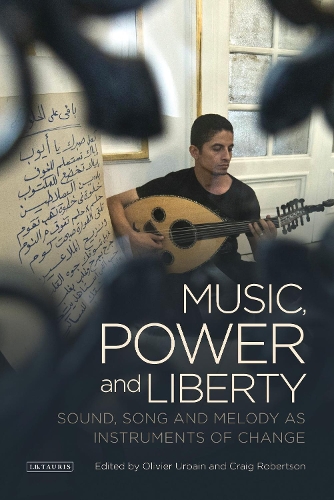
Music, Power and Liberty: Sound, Song and Melody as Instruments of Change
(Paperback)
Publishing Details
Music, Power and Liberty: Sound, Song and Melody as Instruments of Change
By (Author) Oliver Urbain
Edited by Craig Robertson
Bloomsbury Publishing PLC
I.B. Tauris
1st October 2015
United Kingdom
Classifications
Tertiary Education
Non Fiction
Music
Revolutionary groups and movements
306.4842
Physical Properties
Paperback
256
Width 156mm, Height 234mm
411g
Description
Music is a complex and multi-faceted art form. Yet too often it is regarded as discrete and self-contained. The chapters in this groundbreaking book explore different aspects of how music may shape society and culture, yet go much further in viewing musical activity as a mode of power that can transform the lives of communities and individuals. The contributors (who include sociologists, musicologists and performers) focus above all on the relationship between music and the political upheavals of the Arab Spring. They examine key topics like music and revolution in Tunisia; the Egyptian musical tradition of the Revolutionary Song; and the ambivalent social status of the Arab musician, revered by the public when performing but also facing suspicion in a society where music is rightly seen as dangerous and subversive. In showing how music has been used to challenge the status quo, as well as enforce it, the ambiguity of music is fully revealed: it can be used to bolster both regime power and popular liberty, often simultaneously. This is a vital contribution to more nuanced understandings of music and politics.
Author Bio
Olivier Urbain is Director of the Toda Institute for Global Peace and Policy Research. He is the author of Daisaku Ikeda s Philosophy of Peace: Dialogue, Transformation and Global Citizenship (2010) and the editor of Music and Conflict Transformation: Harmonies and Dissonances in Geopolitics (2008, paperback 2015) and of Daisaku Ikeda and Dialogue for Peace (2013), all published by I.B.Tauris."
